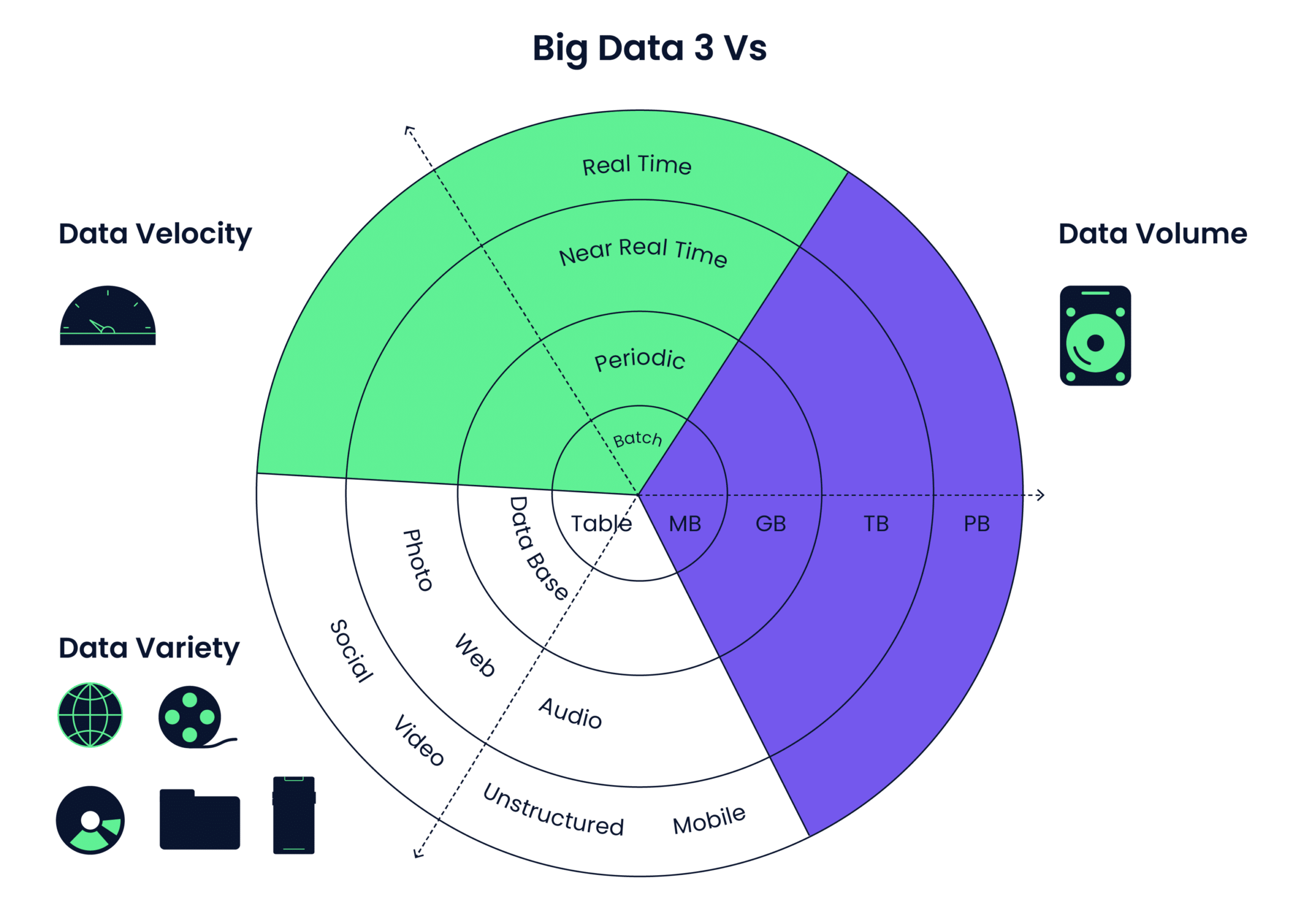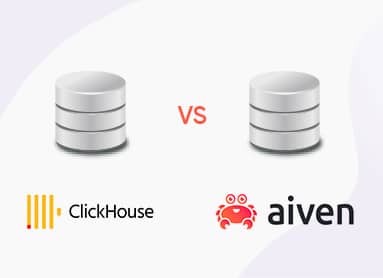Data engineers are crucial in helping enterprises make data-driven decisions in the era of big data and digital transformation. They are responsible for designing data engineering tools for building and maintaining systems that collect, process, and store vast amounts of structured and unstructured data.
Data engineers ensure that data is readily available, accurate, and secure for data analysts, data scientists, and other stakeholders to drive insights, innovation, and strategic decision-making. Data Engineering skills should include expertise in handling diverse data sources and constructing efficient data pipes to enable organizations to harness the power of data, help with data warehousing, leverage advanced data analytics, and create a competitive advantage. They are indispensable in today’s data-centric business landscape. And as data volume, variety, and velocity grow, the demand for skilled data engineers will only increase.

The role of data engineers is continuously evolving to meet the changing needs of the industry. They are expected to adopt emerging technologies and stay up-to-date with the latest data processing, storage, and analytics advancements. As artificial intelligence (AI) and machine learning (ML) become more prevalent in various sectors, data engineers’ skills must adapt to new tools and platforms. The future of the data engineering role will likely involve more collaboration with many key stakeholders at the data stack layer and increased focus on automation, real-time analytics, and cloud-based solutions.
Who are Data Engineers?
Data engineers are specialized professionals who work at the intersection of software engineering, data management, distributed processing, and data warehousing. They possess unique skills that enable them to create and maintain the infrastructure necessary for handling large volumes of data, also known as big data, transforming it into a helpful format for analysis and decision-making. They are the backbone of any data-driven organization, facilitating the smooth data flow from various sources to the end-users.
A data engineer’s primary goal is to design and build scalable, efficient, and robust data systems that can ingest, process, and store data from various sources. These sources can include databases, APIs, log files, and data streams. Data engineers ensure that the data is clean, consistent, and available promptly, thus enabling organizations to analyze data and derive meaningful insights from it.
Data engineers often work with data scientists and analysts who focus on extracting actionable insights and building predictive models from the processed data. While data analysts concentrate on the analytical and statistical aspects, data engineers handle the technical challenges of managing, transforming, and storing data. This collaboration is essential for creating a data-driven culture within an organization, as it allows each team member to focus on their area of expertise, leading to more accurate and reliable insights.
A strong background in computer science, programming, and database management is typically required for a career in data engineering. Additionally, data engineers must be proficient in various data manipulation languages, such as SQL and Python, and be familiar with big data tools and technologies, such as Hadoop, Spark, and Kafka. As the field of data engineering continues to evolve, these professionals must also stay up-to-date with the latest trends and developments in big data technologies and management, AI & ML, and cloud computing.
What Does a Data Engineer Do?
A data engineer plays a pivotal role in the data ecosystem, focusing on designing, developing, and managing data infrastructure. Their primary responsibility is to create and maintain systems that enable organizations to collect, store, process, and analyze large volumes of structured and unstructured data. Data engineers work closely with data scientists, analysts, and other stakeholders to ensure that data is readily available, accurate, and secure for various purposes, such as business intelligence, predictive modeling, data visualization, and decision-making.
Data engineers play a vital role in integrating data from multiple sources and making it accessible for analysis. They must understand various data formats and protocols, work with APIs and database systems, and develop connectors and ETL (Extract, Transform, Load) processes to merge and transform data from disparate systems into a unified and consistent format. One of the critical tasks for a data engineer is to design and implement data pipelines, a series of processes that automate the flow of data from source to destination, including data ingestion, transformation, storage, and data analysis.

Data engineers use tools and technologies like Apache Kafka, Apache Nifi, and Apache Airflow to create reliable and efficient pipelines that handle data’s ever-increasing volume and complexity.
Another key task is to ensure data quality and integrity, especially if the company wants to implement data governance to achieve regulatory compliance. They must develop processes and systems to validate, clean, and standardize data and implement error handling and monitoring mechanisms to catch inconsistencies or issues in data. This is crucial for maintaining trust in the data and ensuring its accurate and reliable insights.

A data engineer has to manage and optimize data storage solutions, such as relational databases, NoSQL databases, and cloud data warehouses. They are responsible for selecting the appropriate storage technology. As data engineering evolves, professionals in this field are increasingly expected to know about advanced analytics, AI, and ML techniques. This enables them to support data scientists in developing and deploying predictive models and assist in automating data processing tasks, such as feature engineering and data preprocessing.
In summary, a data engineer is responsible for designing, building, and maintaining the underlying data infrastructure that empowers organizations to make data-driven decisions and unlock valuable insights.
Data engineering skills must have
The essential data engineering skills encompass a range of programming languages, data modeling tools, and platforms, which enable data engineers to build, manage, and maintain efficient and scalable data infrastructure. Key skills include:
Data Engineer Technical Expertise
- Python
Python, a data scientist best friend, is a versatile, high-level programming language that has also become the go-to choice for many data engineers due to its readability, ease of use, and extensive libraries for data manipulation, such as Pandas, NumPy, and Dask.
- Java
Java is another popular programming language for data engineering tasks, especially in large-scale, distributed systems. - Cloud computing
Cloud-based platforms, such as AWS, Azure, and Google Cloud, offer a wide range of managed data storage, processing, and analytics services. - Kafka
Apache Kafka is a distributed streaming platform that enables data engineers to build real-time data pipelines and streaming applications. With its ability to handle high-throughput, fault-tolerant, and low-latency data streams, Kafka is widely used in scenarios where data needs to be processed in real-time. - SQL
SQL (Structured Query Language) is the standard language for managing and querying relational databases. Data engineers must be well-versed in SQL to efficiently retrieve, insert, update, and delete data and create and modify database structures. - Data Pipeline
A data engineer needs to be skilled in designing and implementing data pipelines, the series of processes that automate the flow of data from source to destination. - AI and ML
As artificial intelligence (AI) and machine learning (ML) become more prevalent in data-driven organizations, a data engineer is expected to have a foundational understanding of these technologies. - Data mining tools
A data engineer must be proficient in using various data mining tools and techniques to extract valuable information from large datasets. - Knowledge of databases
A strong understanding of relational database management systems (e.g., MySQL, PostgreSQL, Oracle) and NoSQL (e.g., MongoDB, Cassandra, Couchbase) is essential for a data engineer. Additionally, knowledge of data warehousing solutions like Amazon Redshift, Google BigQuery, and Snowflake is crucial for managing large-scale analytical workloads. - DBT
DBT (Data Build Tool): DBT is an open-source data transformation tool used by data engineers to transform raw data into a structured format suitable for analysis. DBT allows users to write modular, reusable SQL code for data transformations, making it easier to maintain and scale data pipelines. - FiveTran
Fivetran is a cloud-based data integration platform that automates extracting and loading data from various sources into a data warehouse. - Snowflake Data Warehouse
Snowflake is a cloud-based data warehousing solution that provides scalable, high-performance storage and querying capabilities for structured and semi-structured data. - Bash
Bash, or the Bourne Again SHell, is a Unix shell and scripting language widely used for automating tasks and managing systems in Linux and macOS environments. - AWS CLI
AWS CLI is a command-line tool that enables users to interact with and manage AWS services, such as EC2, S3, and RDS, directly from the command line or through scripts.

Data Engineering Soft Skills
- Critical thinking
A data engineer must possess critical thinking skills to analyze complex problems, identify underlying patterns, and develop practical solutions. This skill helps them to evaluate the efficiency and reliability of different data processing methods, choose the most appropriate tools and technologies for a given task, and make well-informed decisions throughout the data engineering process. - Problem-solving:
A data engineer might face many challenges, such as inconsistencies, performance bottlenecks, and system failures. Strong problem-solving skills are crucial. A data engineer needs to be able to diagnose issues, understand their root causes, and implement effective solutions promptly. - Collaboration:
Data engineering is often a collaborative effort involving interactions with many technical members of the organization. A data engineer must work effectively in a team, share knowledge, and communicate ideas and concerns. - Presentation skills:
Data engineer needs to be able to present their findings, proposals, and progress updates to both technical and non-technical audiences. Effective presentation skills enable them to convey complex concepts clearly and concisely, facilitating understanding and decision-making. - Innovation:
Data engineering constantly evolves, with new tools, technologies, and methodologies emerging regularly. A data engineer must have an innovative mindset, stay abreast of the latest trends and developments, and explore new ways to solve problems and improve work efficiency. - Passion:
Successful data engineer is passionate about their work, driven by a genuine interest in data and its potential to transform organizations and industries. This passion fuels their motivation to learn new skills, stay current with industry trends, and invest time and effort to develop and maintain a robust data infrastructure. - Eagerness to learn:
The rapidly changing landscape of data engineering requires professionals to be lifelong learners, continuously updating their skills and knowledge to remain relevant and effective in their roles. A data engineer must be eager to learn about new technologies, techniques, and best practices and be willing to adapt their approach as needed.

How do you become a data engineer?
To become a data engineer, one must acquire the necessary data engineering skills, gain practical experience, acquire in-depth knowledge of programming skills, and stay updated with industry trends and advancements.

Educational background: Start by pursuing a formal education in a relevant field, such as computer science, information technology, or data science. A bachelor’s degree in one of these areas will provide a solid foundation in programming, databases, and algorithms.
- Learn essential technical skills: Develop proficiency in programming languages like Python and Java, and SQL for working with databases. Familiarize yourself with various data storage systems, both relational and NoSQL, and learn how to design and optimize data models.
- Acquire domain-specific knowledge: Depending on your target industry or area of expertise, you may need to acquire domain-specific knowledge. For example, if you’re interested in finance, you may need to learn about financial markets and regulations. Domain-specific knowledge will enable you to understand better the data you work with and design more effective data solutions.
- Gain practical experience: Hands-on experience is crucial for developing data engineering skills. Seek internships, co-op programs, or entry-level positions that will allow you to work on real-world data projects. Alternatively, consider contributing to open-source projects or working on personal projects to build your portfolio.
- Obtain certifications: Earning industry-recognized certifications can help validate your skills and enhance your credibility as a data engineer. Popular certifications include AWS Certified Big Data Specialty, Google Cloud Professional Data Engineer, and Microsoft Certified: Azure Data Engineer Associate.
- Network and learn from others: Join data engineering communities, attend conferences, and participate in workshops to connect with other professionals in the field.
- Continuous learning: As the field of data engineering evolves rapidly, it’s essential to be a lifelong learner. Stay informed about new tools, technologies, and best practices by attending webinars, online courses, and reading industry publications.
What are Data Engineer roles and responsibilities?
With some of the essential data engineering skills mentioned above, a data engineer can play a critical role in the data-driven landscape of modern organizations. They are responsible for creating and maintaining the infrastructure that allows businesses to collect, store, process, and analyze vast amounts of data. Here are some key roles and responsibilities of data engineers:
- Design and build data infrastructure: Data engineers are responsible for designing and implementing scalable, reliable, and efficient data infrastructure, which includes databases, data warehouses, and data processing systems. They must consider performance, security, and cost factors when selecting the appropriate technologies and platforms for their organization’s needs.
- Develop and maintain data pipelines: Data engineers create and manage data pipelines, which are workflows that extract, transform, and load (ETL) data from various sources into a unified storage system. This involves writing code, configuring tools, and integrating APIs to ensure data flows smoothly and accurately between systems. Data engineers also monitor and troubleshoot data pipeline performance, ensuring data is available for analysis and reporting when needed.
- Data cleansing and transformation: Data engineers are responsible for cleaning, transforming, and enriching raw data, making it suitable for analysis and consumption by data scientists, analysts, and business users. They apply various techniques to correct inconsistencies, fill in missing values, and convert data into structured formats, ultimately ensuring that the data is reliable and accurate.
- Optimize data storage and retrieval: Data engineers are responsible for optimizing the performance of databases and data warehouses, ensuring that data can be stored and retrieved efficiently. They design and implement indexing strategies, partitioning schemes, and data compression techniques to minimize storage costs and maximize query performance.
- Collaborate with data scientists and analysts: Data engineers work closely with them to ensure they can access the data and tools needed. They assist in preparing datasets, implementing machine learning models, and deploying analytical solutions to production environments.
- Maintaining data security and compliance: Data engineers ensure data is stored and processed securely, adhering to industry regulations and organizational policies. They implement access controls, encryption, and data masking techniques to protect sensitive information and maintain data privacy.
- Stay current with industry trends: Data engineers must stay up-to-date with the latest tools, technologies, and best practices in their field. This includes learning about new data processing frameworks, cloud services, and data storage solutions and keeping an eye on emerging trends in data engineering, such as real-time analytics and data streaming.

Conclusion
Data engineers play a vital role in today’s data-driven organizations by building and maintaining the infrastructure that enables efficient data collection, storage, processing, and analysis. Their technical and soft skills, encompassing programming languages, data processing tools, cloud platforms, problem-solving, critical thinking, and collaboration, are essential to their success in this field.
To become a data engineer, individuals must pursue relevant education, acquire necessary technical and soft skills, gain practical experience, obtain certifications, and engage in continuous learning. Data engineers’ roles and responsibilities include designing data infrastructure, developing data pipelines, ensuring data cleanliness and consistency, optimizing data storage and retrieval, and collaborating with data scientists and analysts.
By implementing best practices in data engineering, such as data validation, cleansing, monitoring, governance, and scalable infrastructure design, data engineers can ensure that data is clean, consistent, and available on time. This enables organizations to leverage their data effectively, derive valuable insights, and make data-driven decisions that drive growth and success.
Published On : 05/23/2023

